Introduction
The report covers issues about leadership and governance at MID Staff NHS.
Issues related to leadership integrity, transparency, responsibility, and accountability are explored.
Recommendations are provided on developing styles of leadership and process of governance; and the make-up of boards and determining levels of executive payment.
Leadership and governance require strategic policy frameworks, effective implementation, effective oversight, coalition-building, regulation and accountability.
Poor leadership and governance lead to appalling outcomes as the case of MID Staffordshire NHS Trust indicates.
There was notable constant refrain from those charged with managing, leading, overseeing or regulating the Trust’s provision of services (Report of the Mid Staffordshire NHS Foundation Trust Public Inquiry 2013).
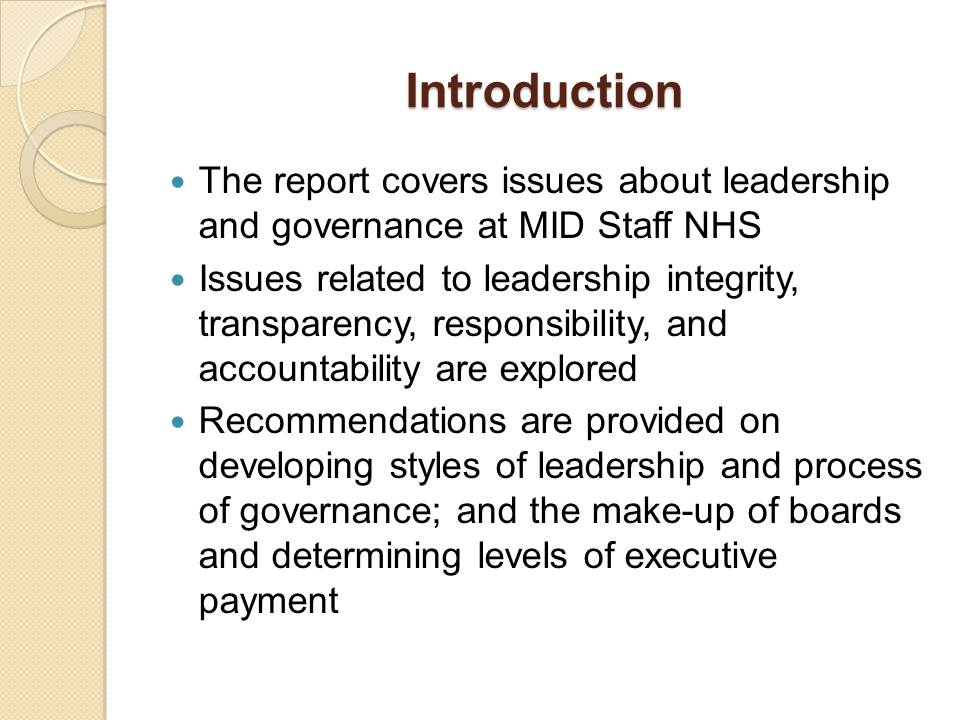
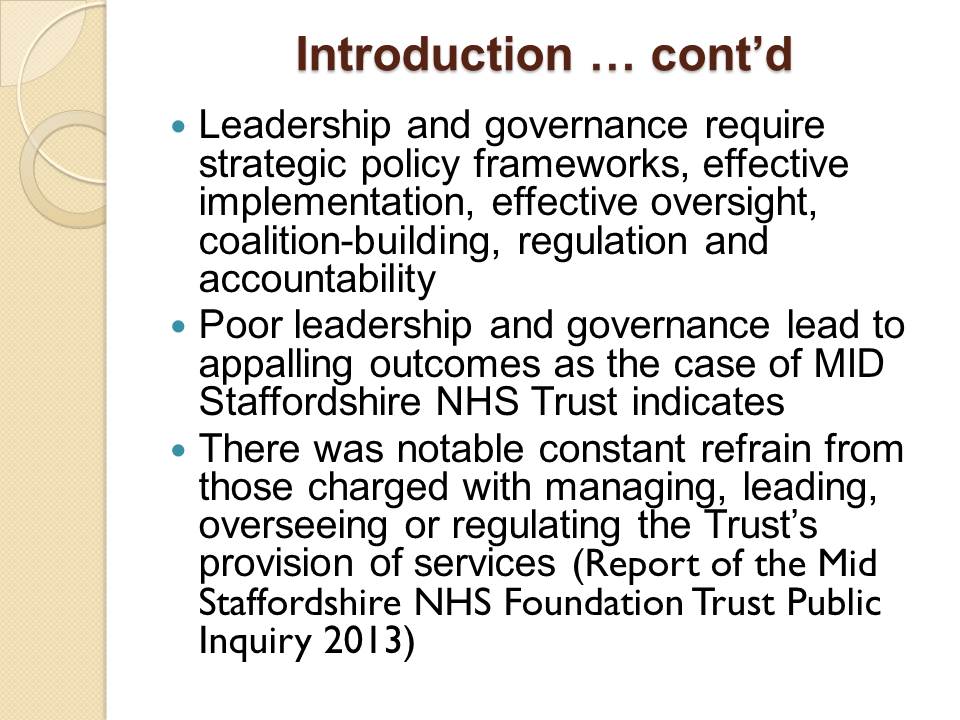
Integrity
A consistency of actions, values, methods, measures, principles, expectations and outcomes.
Act in the right manner for the right reason, irrespective of the situation.
The MID Staff NHS board lacked integrity.
The Trust Board reflected a general lack of commitment to common values throughout the system.
A culture focused on doing the board’s business and not patients’ concerns.
The organisation experienced an insidious negative culture involving a tolerance of poor standards and a disengagement from managerial and leadership responsibilities by the board.
Standards and methods of measuring compliance were not used for patients.
A failure in communication within multiple agencies involved – scrutiny groups, commissioners, regulators and professional bodies.
The board discouraged open criticism, consideration for patient, but promoted defensiveness, secrecy, misplaced assumptions, acceptance of poor standards and failure to cater for important stakeholders – patients.
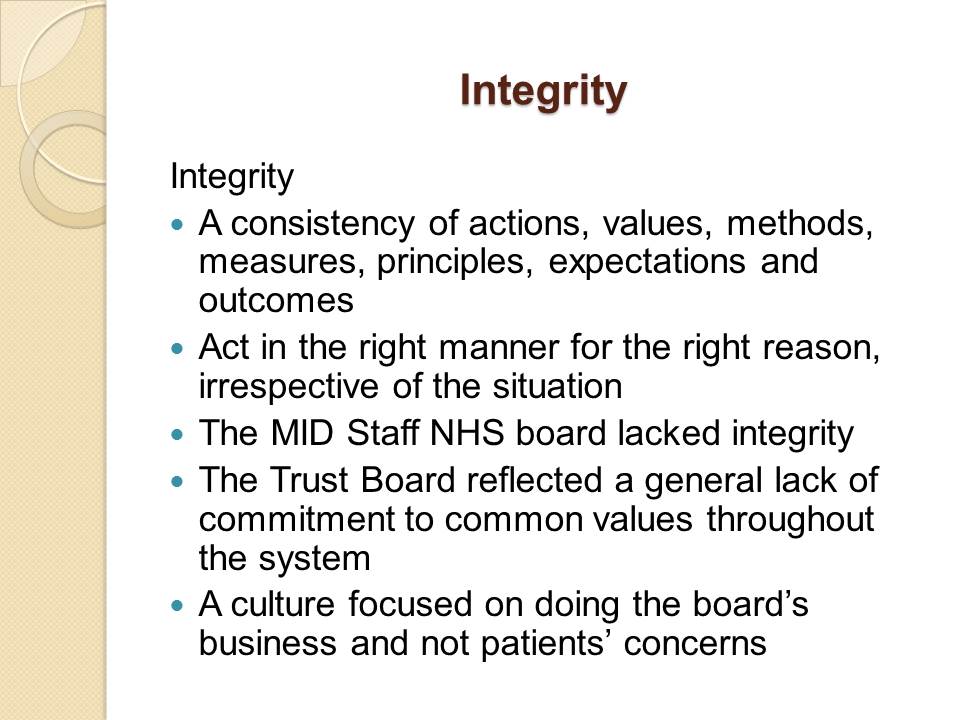
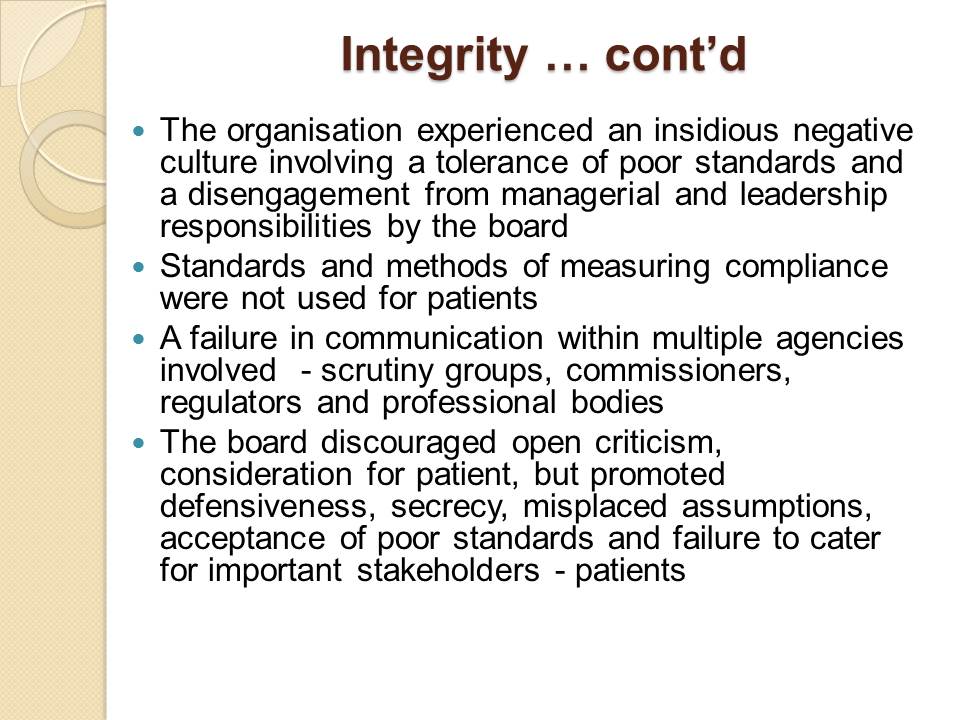
Transparency
The board lacked a common culture of transparency.
There was a lack of internal and external transparency regarding the problems that existed at the Trust.
All agencies, including Healthcare Commission and the local oversight and scrutiny committees could not detect appalling standards of care due to lack of transparency.
At the heart of the failure was a lack of openness, transparency and candour in information emanating from the Trust and over-reliance on that information by others.
No concerns were raised freely.
There was a lack of an obligation to disclose and to monitor any significant information, irrespective of its importance.
Patients affected during appalling situations were not informed of their predicaments.
Standards and methods of measuring compliance were not transparent to patients.
The culture of the board focused on positive information about the service rather than highlighting issues, their causes and concerns.
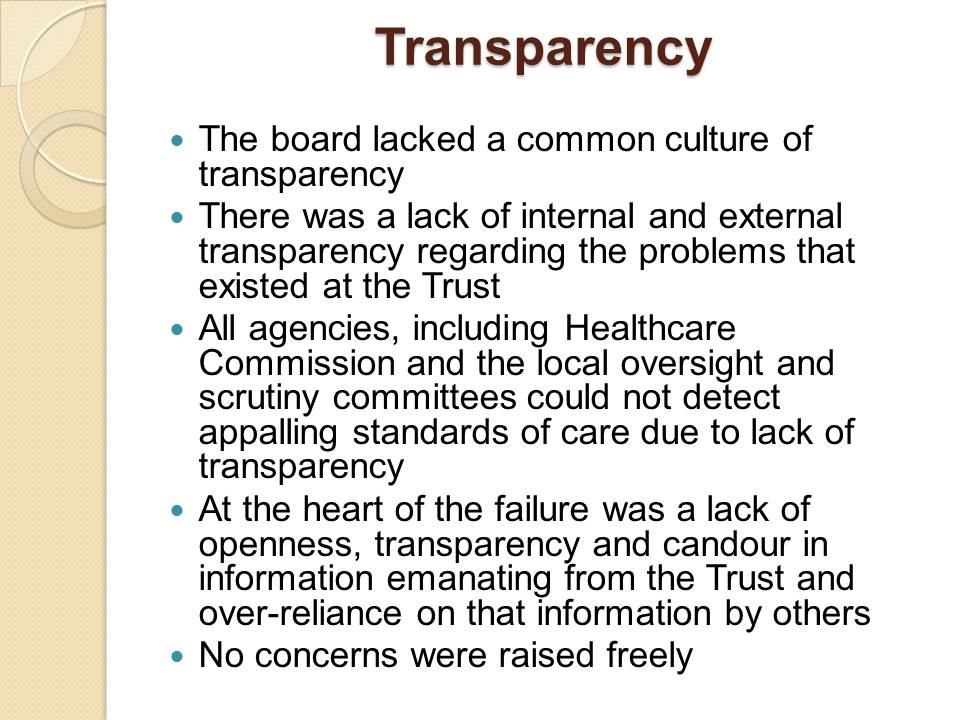
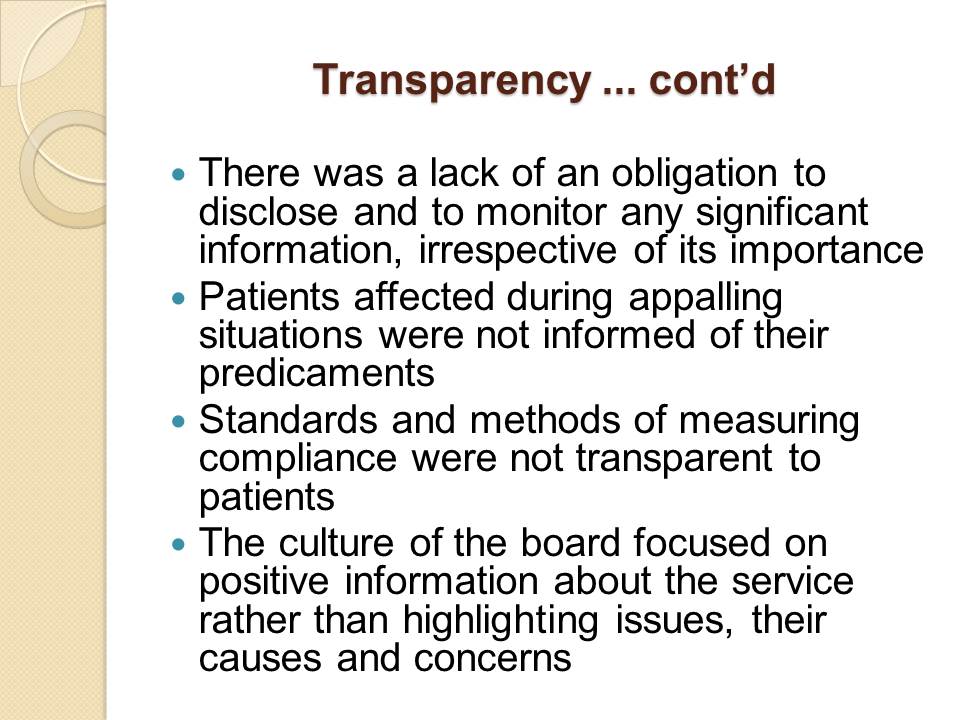
Responsibility
The board and Trust’s professional staff had the primary responsibility for allowing standards at an acute hospital trust.
The system was designed for directors to lead and manage the provision of services within organisational allocated budget and standards to serve and protect their patients.
The board, however, had assumptions that monitoring, performance management or intervention was the responsibility of someone else.
The board and affiliated agencies have the responsibility to detect and redress deficiencies in local management and performance where these occur.
The board had the responsibility for oversight, commissioning and regulation of healthcare services and professionals at the relevant time.
Individuals who had responsibilities to make follow-ups on peer review reports did not do so.
Leaders from the board and Trust professionals who had the most clear responsibility for ensuring a safe and good standard care was provided, failed to appreciate the extent of what was happening, reacted too slowly, if at all and downplayed the importance of other issues.
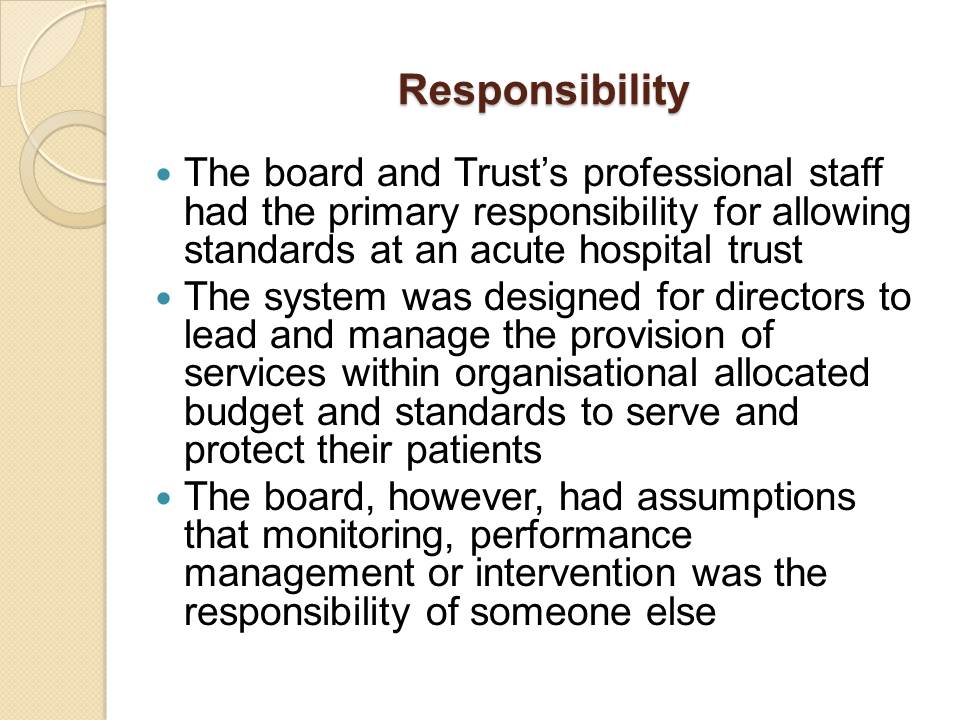
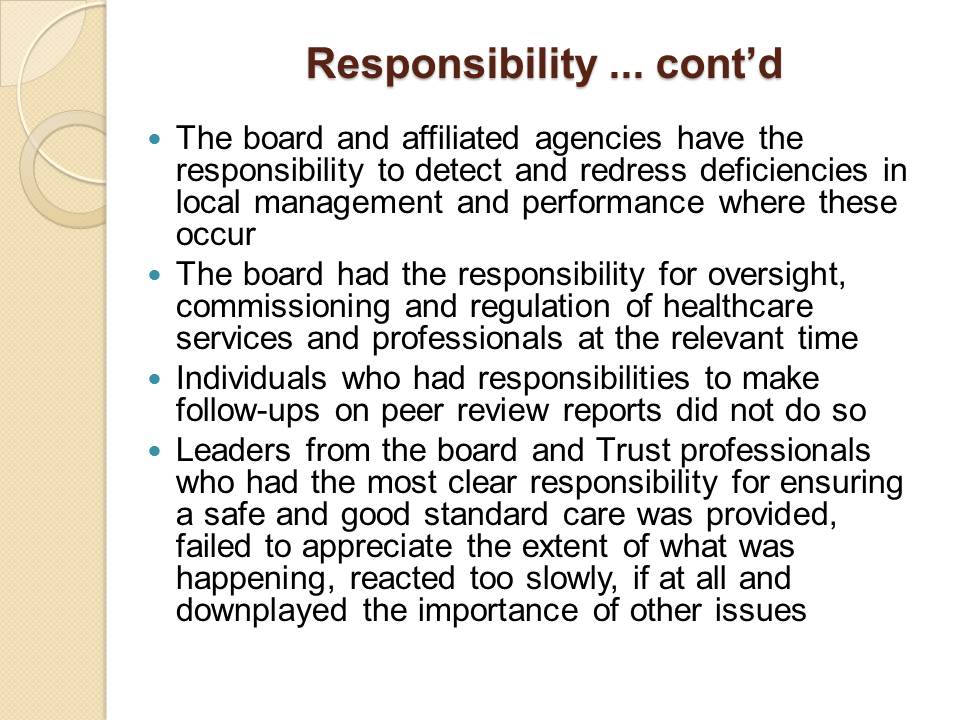
Accountability
The system was intended to maintain and enhance standards, control the conduct of staff, report and review performance.
The Board failed to focus on its accountability and governance structure for the entire period under review.
An effective degree of accountability for senior executives and leaders was in place with the responsibility to protect interests of patients on a fair manner.
The board did not establish any standards for accountability.
The public demand for accountability was left unsatisfied by the board.
Leaders did not follow the set out principles to ensure effective public accountability.
The board ignored critical sources of information such as complaints, which could have acted as sources of accountability and basis for improvement (Wheelen & Hunger 2012).
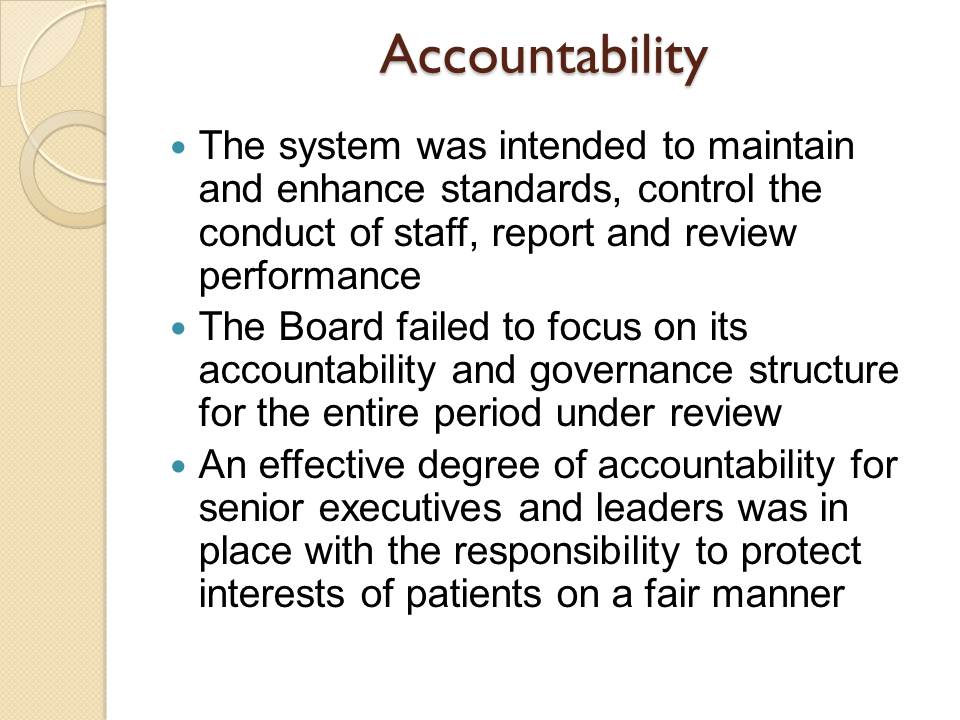
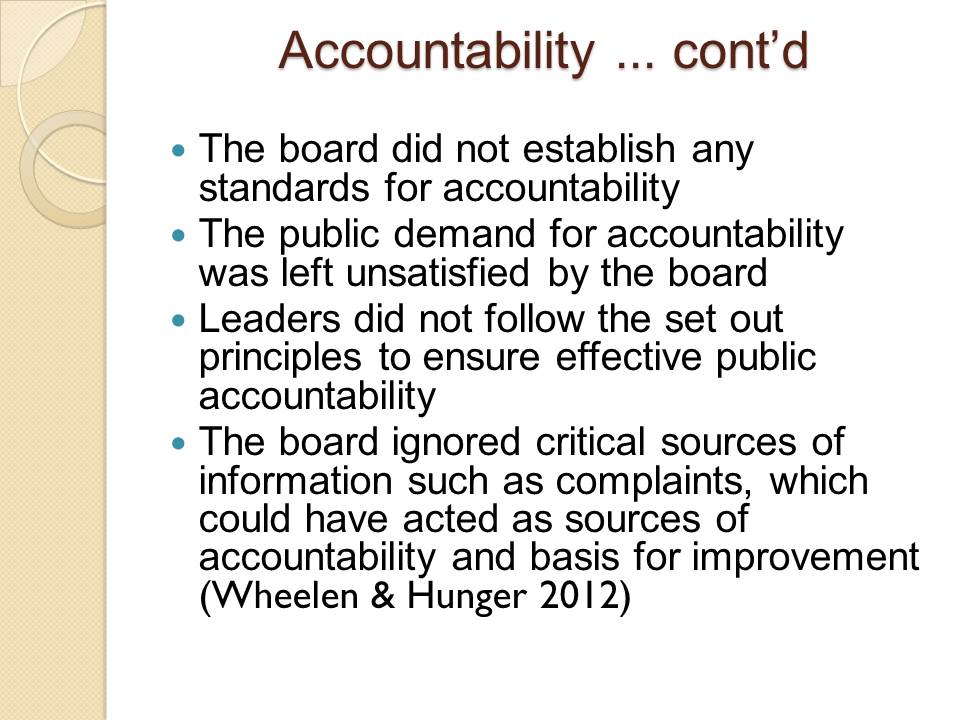
Recommendation
Developing styles of leadership and process of governance
- Good leadership is necessary for effective operations and performance of any institution (Wheelen & Hunger 2012).
- Good corporate governance can only emanate from good leadership.
- Leaders should learn various leadership styles.
- The board must focus on promoting integrity, transparency, responsibility, accountability, communication and other elements of effective leadership styles and governance.
- King III report shows that organisations should be sound, uphold ethical standards and promote a culture of integrity.
- Spirit of good governance is required in all levels of management.
- Accountability should guide governance and management in public organisation.
The make-up of boards and determining levels of executive payment
- The make-up of boards should consists of appropriate balance of skills, experience, independence and knowledge of an organisation to ensure that directors can discharge their respective duties and responsibilities effectively (Mujtaba n.d).
- For executive compensation, create methods for determining payment, payment should be reasonable or appropriate and establish a strong oversight (Nathan 2011).
- The board of directors must evaluate and determine the executive compensation (Bebchuk & Fried 2006).
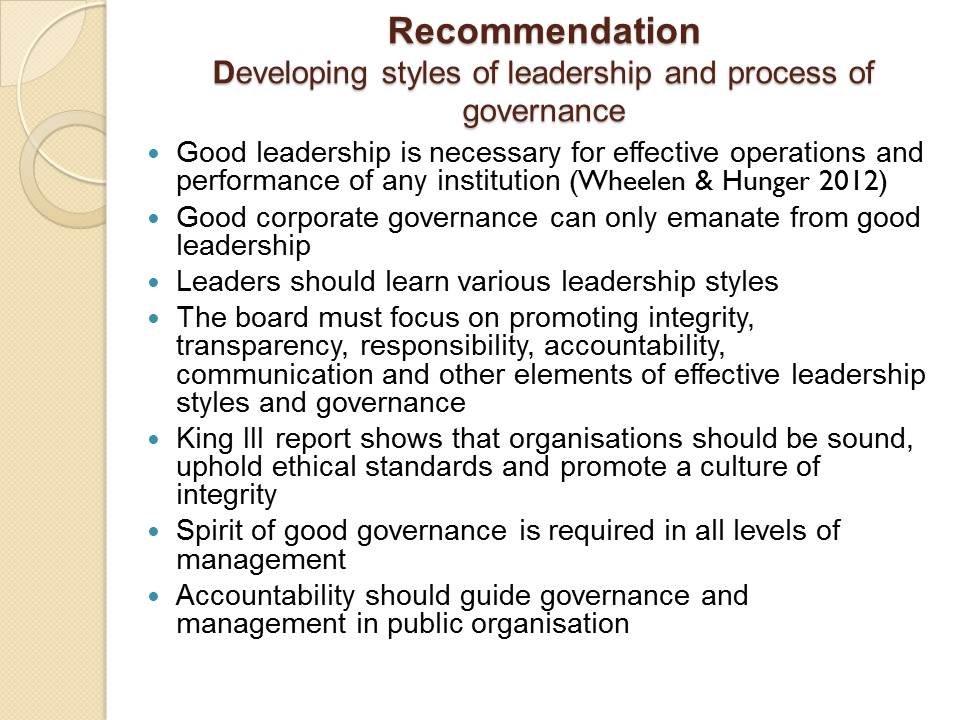

Reference List
- Bebchuk, L & Fried, J 2006, Pay without Performance: The Unfulfilled Promise of Executive Compensation, Harvard University Press, Cambridge, MA.
- Mujtaba, N n.d., Corporate Governance & Board Composition: A Comparison of GCC Boards with UK, European and US Boards, Web.
- Nathan, C M 2011, A 12-Step Program to Truly Good Corporate Governance. Web.
- Report of the Mid Staffordshire NHS Foundation Trust Public Inquiry, 2013, The Stationery Office Limited, London.
- Wheelen, T & Hunger, D 2012, Strategic Management and Business Policy: Toward Global Sustainability, 13th edn, Pearson Education, New York.